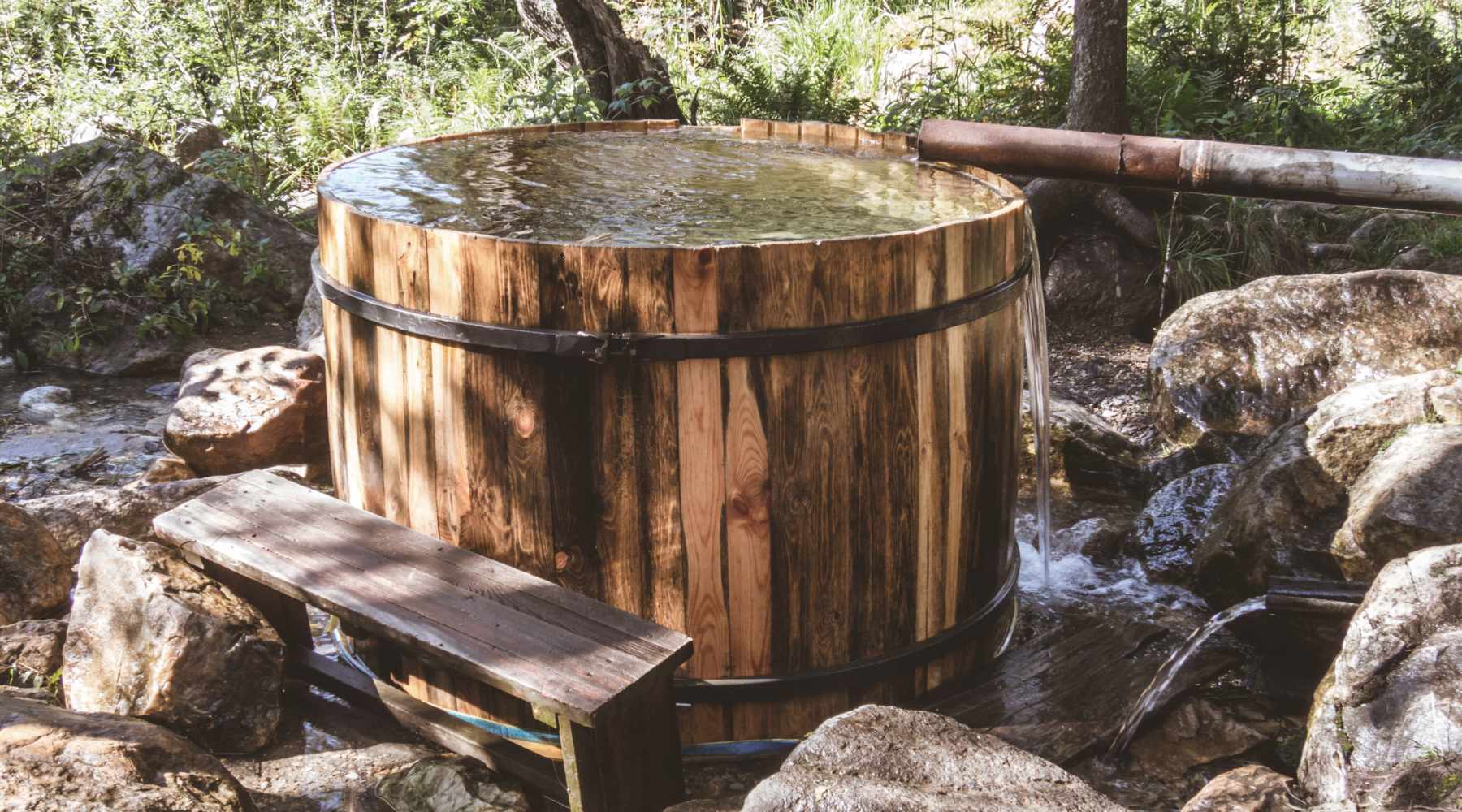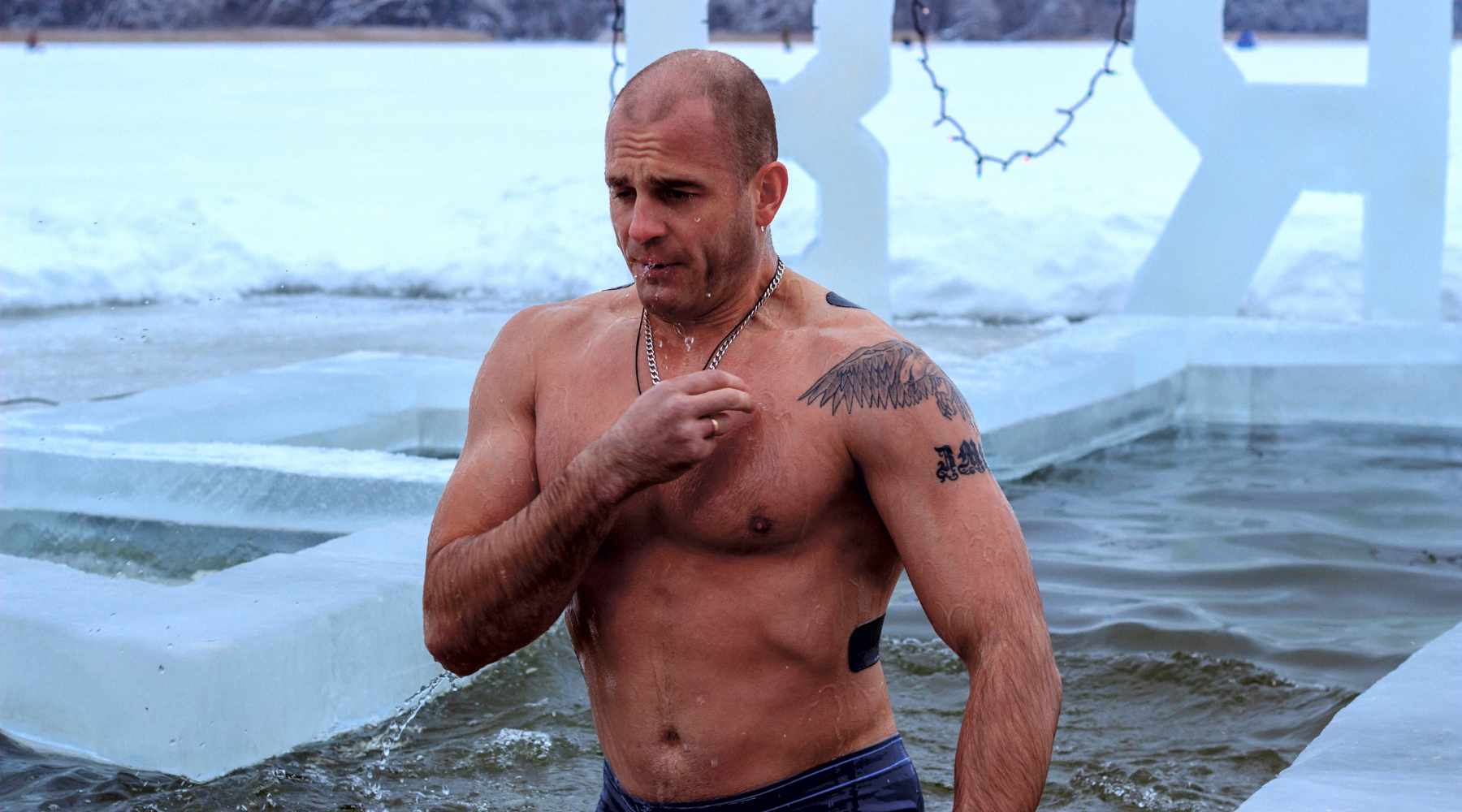Confused about whether or not to take a cold dip in an ice bath vs sweating it out in an infrared sauna? You're not alone! An ice bath and an infrared sauna have health benefits that are defying today's perspective on alternative medicine, improving the longevity and quality of life for many.
But which is better? In today's blog, we will look at the scientific benefits of ice baths, compare them to the benefits of saunas, and answer the question once and for all – what is better: ice bath vs sauna?

Exploring the Benefits of Infrared Sauna and Ice Bath
Infrared sauna health benefits can help with detoxification and weight loss, as well as provide stress and pain relief, improve muscle recovery, boost cardiovascular health, reduce inflammation, promote relaxation, and even help with diabetes support. You may also notice an improvement in the health and appearance of your skin due to increased elastin and collagen production.
These are just some of the many benefits that infrared saunas provide, making them a popular self-care option for boosting immunity and promoting overall well-being. But how do they stack up against the benefits of an ice bath?
What are the Benefits of an Ice Bath?
Do you know that immersing yourself in cold water can have many health benefits? Here is a list of 8 ways in which cold water immersion can improve your well-being:
- Faster muscle recovery: After a tough workout, a cold plunge can help you recover faster by improving sprint speed and reducing muscle damage markers like creatine kinase.
- Better mental health: Cold exposure has been linked to a potential anti-depressive effect, helping reduce symptoms of depression. Winter swimmers have reported improved mood, reduced tension and fatigue, enhanced memory, and more energy.
- Less risk of injuries: Cold plunge can help prevent injuries and keep athletes performing at their best during periods of physical stress by supporting faster recovery and reducing muscle damage.
- Reduced inflammation: Ice cold water activates adaptive responses that help decrease inflammation levels, enhance immune system responses, and provide cardio-protective effects.
- Pain relief: If you're struggling with conditions like rheumatism, fibromyalgia, or asthma, winter swimming might help you feel better and provide pain relief.
- Protect your brain: Ice-cold water submersion can promote synapse regeneration and protection, which might help protect against neurodegenerative diseases.
- Hormonal balance and metabolic effects: Cold plunge can burn fat, increase insulin sensitivity, and decrease insulin concentrations. It can also regulate hormones involved in your body's thermogenesis, lipid metabolism, and browning of adipose tissue (brown fat).
- Improved blood circulation: Exposure to cold plunges can lead to thermoregulatory adaptations in your body, such as improved blood flow, increased cold-induced thermogenesis, and temporary habituation of thermal sensation and comfort.
- Cardiovascular health: Cold plunges can help decrease cardiovascular risk factors, increase cardiovascular health markers, and contribute to an adaptive process that normalizes blood pressure responses.
It's clear that a cold plunge routine can offer numerous health benefits, from improved blood circulation and hormone balancing improvements to temporary adjustments in the body's response to cold, the advantages are significant. Let's take a closer look at the science behind some of these wonderful benefits.

Health Benefits of Cold Therapy: The Science Behind Ice Baths
Although taking a dip in an ice-cold bath may sound daunting, the numerous health benefits of cold plunging are too great to ignore.
Recent research has shown that exposing the body to cold temperatures results in certain physiological adaptations that enhance overall health and well-being.
From the promotion of brown adipose tissue formation and metabolism-boosting to the stimulation of adiponectin production, cold plunging is a powerful practice with potential health benefits.
Furthermore, regular winter swimming can lead to greater comfort with the cold sensation and promote better blood flow and vasodilation for improved cardiovascular health.
In this section, we will delve deeper into the science behind ice baths and explore their numerous health benefits in detail. So, let's take the plunge and explore the science of cold plunging!
Ice Bath Effects on Hormone Health
Recent studies indicate that taking regular dips in cold water can positively impact various hormone systems in the body.
Ice baths aid in regulating the body's stress response by reducing levels of adrenocorticotropic hormone (ACTH) and cortisol. These hormones are markers of stress, and decreased levels indicate a lessening of the pituitary-adrenal cortex axis response.
Additionally, regular cold water exposure increases norepinephrine, which may play a role in lowering pain and increasing cold tolerance.
Swimming in the winter on a regular basis has been found to improve insulin sensitivity. This means it can help your body use glucose more efficiently and maintain healthy blood sugar levels by decreasing insulin concentration.
Immersing oneself in cold water can prompt the body to produce heat without shivering, which in turn may lead to higher levels of adiponectin. This hormone helps safeguard against age-related illnesses and insulin resistance.
The research indicates that taking ice baths can help with hormone health by reducing cortisol and ACTH levels, increasing norepinephrine, improving insulin sensitivity, and increasing the production of adiponectin; this can result in an enhanced feeling of well-being.

Benefits on the Nervous System from Ice Baths
Cold plunge isn't just good for the body, it could also be beneficial for your nervous system. While more research is needed to fully understand its effects, animal studies show that cold plunging may enhance neural connectivity.
The study discovered that cold-shock proteins, specifically the RNA binding protein (RBP3), could aid in synapse regeneration in mice with neurodegenerative diseases such as Alzheimer's when exposed to cold temperatures. This indicates that cold plunging may have the potential as a protective treatment for neurodegenerative illnesses in humans.
In rats, the combination of stem cell transplantation and cold-water swimming has shown even more significant functional recovery following peripheral nerve damage compared to stem cell transplantation alone.
These studies suggest that cold immersion may offer benefits for nervous system health and enhance neural connectivity, promoting optimal health and well-being.
Stress and Inflammation Reduction Benefits from Ice Baths
Studies indicate that regular CWI can decrease inflammation levels, as evidenced by lower levels of inflammation seen in centenarians compared to the elderly population.
Cold-water immersion (CWI) can boost metabolic rate and cause plasma catecholamine concentrations to rise, which can have a positive effect on the immune system. Studies suggest that CWI may also have anti-inflammatory effects by altering oxidative stress markers and offering cardiovascular protection. Furthermore, winter swimmers who undergo CWI have experienced alterations in their immune system responses, such as higher levels of interleukin (IL)-6 and a range of lymphocyte populations.
CWI has been shown to have conclusively beneficial effects for reducing stress and providing anti-inflammatory effects. It has also been found to promote overall well-being and offers promising impacts on immune system function.

Ice Bath Benefits for Mental Health
Though it causes extreme stress, some people choose to practice a cold plunge routine for its potential benefits to mental health.
Regular winter swimming can be uplifting and enjoyable while also potentially improving one's mental well-being, as research prompts that it can release beta-endorphins and synaptic noradrenaline in the brain, which can help with brain development and positive mental health.
According to studies, exposing oneself to cold water regularly can effectively alleviate symptoms of depression and even act as an antidepressant. It has been observed that individuals who regularly swim during the winter months report experiencing improved mood, reduced tension and fatigue, enhanced memory, and increased energy levels.
Cold may even provide pain relief for conditions such as rheumatism, fibromyalgia, and asthma. These findings highlight the potential of cold water immersion as a therapeutic practice for psychological well-being, promoting positive mental states.
Ice Bath Benefits for Muscle Recovery and for Athletes
Taking ice baths after intense physical activity has the potential to enhance muscle recovery and boost athletic performance.
According to research, taking part in cold water immersion after exercising can help prevent injuries and speed up the recovery process. In a study conducted by Leeder et al. on athletes, those who did CWI after exercise had better recovery. This was evident by improved sprint speed 24 hours later and reduced levels of creatine kinase (CK), an indicator of muscle damage. It is believed that the decrease in CK is due to the reduced muscle blood flow caused by CWI, which helps reduce muscle damage.
Furthermore, other studies have supported these discoveries, indicating that cold water immersion (CWI) is effective in lowering muscle metabolic activity while still supplying the required tissue oxygenation for appropriate muscle rehabilitation.
By including CWI in their exercise regimen, athletes could experience quicker recovery times, and less muscle damage, and thus sustain their performance levels during training and competitions.

Ice Bath Effects on Cardiovascular Health
Regular cold water immersion (CWI) has numerous benefits, including positive effects on several key cardiovascular risk markers. Regular cold-water immersion (CWI) has been shown to reduce risk factors associated with poor cardiovascular health, such as the apolipoprotein B/apolipoprotein A1 ratio, plasma homocysteine levels, and oxidative stress markers. Though the first exposure to cold water may cause a temporary increase in heart rate and blood pressure, the benefits of regular CWI outweigh this initial response.
Adapting to cold-water exposure can enhance cardiovascular health by increasing various markers of cardiovascular well-being, such as triiodothyronine levels, paraoxonase-1 activity, and zinc concentration. While initial exercise in cold water may elevate cardiac troponin levels, there is no evidence suggesting an amplified risk of acute coronary syndromes.
Furthermore, regularly undergoing cold water immersion (CWI) does not cause a persistent increase in blood pressure. In fact, it may even lead to an adaptive response that helps regulate blood pressure. Given these advantages, it is evident that CWI can enhance cardiovascular health and provide protective effects for the heart.











Infrared Light Therapy At Home
How To Use A Sauna For Sore Muscles